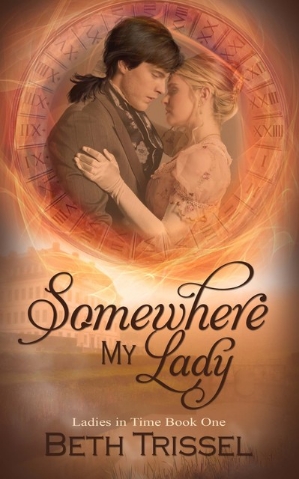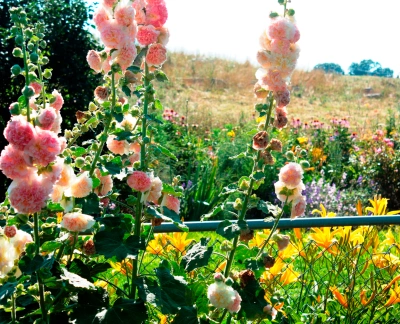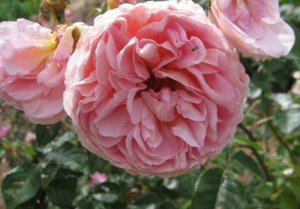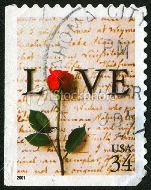 The Vinegar of the Four Thieves is a fascinating concoction, heavily embellished with legend, that supposedly warded off the bubonic plague.
The Vinegar of the Four Thieves is a fascinating concoction, heavily embellished with legend, that supposedly warded off the bubonic plague.
I found this interesting snippet on a site that sells essential oils and herbs called Annie’s Remedy:
“Vinegar of the Four Thieves (Marseilles vinegar) There are many versions of this formula, which is often referenced in herbals dating from medieval times to the present. The French doctor Jean Valent including this one in his groundbreaking book on aromatherapy.
The story goes that this formula was revealed in the 17th century by four corpse-robbers caught red-handed during the time of the great plagues of Toulouse (1628-1631). Their disregard for the contagion thoroughly astonished the judges… The archives of the Parliament of Toulouse record that: “During the great plague, four robbers were convicted of going to the houses of plague-victims, strangling them in their beds and then looting their dwellings: for this they were condemned to be burned at the stake, and in order to have the sentence mitigated they revealed their secret preservative; after which they were hanged.”
***For the list of ingredients in the recipe and brewing instructions please visit the above link.
From a fascinating, far more in-depth article: Four Thieves Vinegar: Evolution of a Medieval medicine:
 “The bubonic plague wreaked havoc in Europe off and on for about 600 years before peaking in the 1300s. Century after century, as late as the 1700s, outbreaks claimed up to half the population. The plague had a big influence on the life of William Shakespeare, having claimed the lives of some of his siblings as well as causing his theater to be shut down during several especially nasty outbreaks in London between 1593 and 1608.
“The bubonic plague wreaked havoc in Europe off and on for about 600 years before peaking in the 1300s. Century after century, as late as the 1700s, outbreaks claimed up to half the population. The plague had a big influence on the life of William Shakespeare, having claimed the lives of some of his siblings as well as causing his theater to be shut down during several especially nasty outbreaks in London between 1593 and 1608.
It is well know that the bubonic plague is a bite-based infection. A lesser known fact is that there were many more victims than those bitten by fleas. It turns out that the bubonic plague was often the first step of a progressive series of illnesses. Two other types were pneumonia and septicemia. The resulting pneumonic plague was also very infectious and allowed person-to-person transmission.
This is the period of time responsible for the bizarre images of physicians wearing dark robes, wide-brimmed hats, and masks with long beaks. There was actually method to the madness. These beaks held dried herbs, spices and essential oils which the physician breathed. The robe was doused with a similar fragrant concoction. Scientific evidence today is building support for this seemingly outrageous behavior… many harmful microbes can’t survive in the presence of certain essential oils.
 Meanwhile in France another interesting aromatic legend developed around a horrid sounding witch’s brew known as “Marseilles Vinegar” or “Four Thieves Vinegar.” A variety of recipes floated around. One recalled by Scientific American in 1910 included things like dried rosemary tops, dried sage flowers, fresh rue, camphor, “spirit,” garlic cloves and vinegar which was to be taken internally for 7 or 8 days “with occasional agitation.” It was said that this “medicated vinegar was invented by four thieves of Marseilles who successfully employed it as a prophylactic during a visitation of pestilence.”
Meanwhile in France another interesting aromatic legend developed around a horrid sounding witch’s brew known as “Marseilles Vinegar” or “Four Thieves Vinegar.” A variety of recipes floated around. One recalled by Scientific American in 1910 included things like dried rosemary tops, dried sage flowers, fresh rue, camphor, “spirit,” garlic cloves and vinegar which was to be taken internally for 7 or 8 days “with occasional agitation.” It was said that this “medicated vinegar was invented by four thieves of Marseilles who successfully employed it as a prophylactic during a visitation of pestilence.”
And that, dear readers, may or may not account for the origins of this herbal concoction, but for more on this bizarre time period, herbal medicines, and disease prevention please refer to the above link.
I couldn’t make this stuff up if I tried. Strangely, or maybe not so strangely, the ultimate cure for the plague that killed masses of men, women, and children in England was the Great Fire of London. It cleaned up better than anything.
For a more in-depth look into that visit: The Great Plague and Fire of London
*Royalty free images

























































Fascinating post, Beth! I guess a large fire would be a great way to burn disease out.
LikeLike
Yes, I guess it would and did. And thanks.
LikeLike
Fascinating Beth! I have read some literature about the catching of the plague being the result of certain genes in families. Isn’t it nice to be seeing this from a historical point of view rather than living it!
LikeLike
Fascinating post, Beth. I’m going back to click on all the links. I’d never heard of this vinegar, and didn’t realize those masks doctors wore had anything in them. I’ve heard that one cause of the plague was the superstition about cats and the elimination of them, thereby giving mice and rats freedom to spread.
LikeLike
Yes I heard that about cats too. Can you imagine seeing these hideous ‘plague bird’ doctors as you lay there horribly ill.
LikeLike
Always love your posts about herbal history. 😉 This one is especially good.
Someday, I’m going to ‘do in’ a villain in one of my stories with vinegar. Why? Because I’m severely allergic to it–anaphylactic shock style…
Thanks for the great post!
~ Aithne
LikeLike
Thanks Aithne. Wow. Allergic to vinegar. That’s a new one to me and my family has a lot of food allergies.
LikeLike
Beth, I heard a scientist mention that all the people living now were desendents of the ones who were resistant to the plague. That’s why you don’t hear about outbreaks anymore. I don’t know how accurate that is.
LikeLike
I have no idea either but it’s interesting to think about.
LikeLike
Excellent, Beth! I always enjoy your posts. This is very timely too, as I just heard that taking a small dose of vinegar regularly will help keep way mosquitoes. I wonder if it was the same with fleas? Also, often a quarantine of 30 days was instated in infected homes – which oddly corresponds to the life-cycle of fleas (27 days). Some of the other treatments were to light fires and place dishes of beer in front of the fires. It turns out, fleas migrate toward light, feast on the beer, and drown. (You can try it with a nightlight and a dish of beer – or dish of dishwashing liquid to avoid attracting ants.) Why am I constantly astounded by the real curative properties of home remedies? I know, I shouldn’t be.
LikeLike
Thanks for the added info! Great stuff, agreed.
LikeLike
I didn’t know about the fire or the vinegar. What a great basis for a novel!
LikeLike
Yes, thanks.
LikeLike
Pingback: History of Thieves Essential Oil Blend | My Blog
Cool
LikeLike